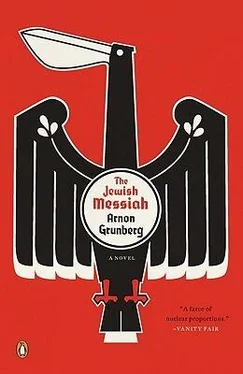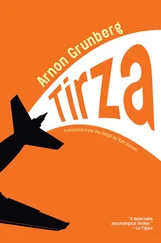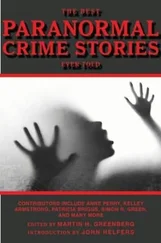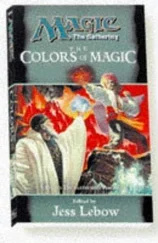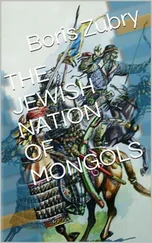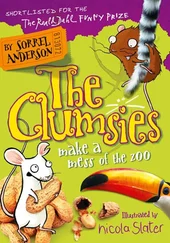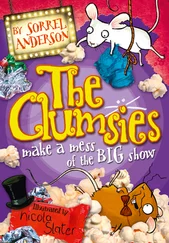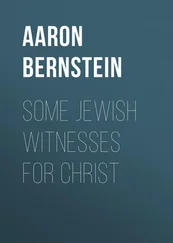Arnon Grunberg
The Jewish Messiah
BECAUSE HIS GRANDFATHERhad served, with sincere enthusiasm and a great faith in what the future would bring, in the SS — the kind of man who wasn’t afraid to roll up his sleeves, not the kind of wishy-washy grandpa who never got up from his desk, who stamped an official document now and then before hurrying home to his wife and children at five, no, a gentleman, one who understood death’s handiwork without bothering his own family about it, a man for whom words like “honor” and “loyalty” still meant something, a man of morals who clung faithfully to a vision even under brutal conditions when many of his buddies stripped off their uniforms and ran for it, but not him, a man who said, “A man of fiber knows his duty, a man of fiber doesn’t just live from day to day,” and, having said that, went on to fire every last round in his clip — the grandson wished to serve a movement with enthusiasm and faith in the future.
It was only by accident that the boy found out about his grandfather’s achievements, one Sunday afternoon while borrowing money from his mother without asking, when he discovered documents, photos, and a book she had hoped would never be found.
Even in the darkness of puberty he was a good-natured fellow, with a fine eye for life’s pleasures. Clouds, pasta, babies in their cradles, the aroma of wine, shop windows full of nice clothes, magazines full of titillating photos, art that had withstood the ravages of time, fast cars, and people, not to forget people, people’s legs, arms, heads, hair, noses, hands, wrists, those thin, pale little wrists that first turn pink in the sun, then slowly redden. The boy loved people, and they loved him.
Europe had been at peace for so long by the time he was born. The war was far, far away, at least that war was, and other wars were, too; around the time he first became interested in the enemies of happiness, experts had already declared that the Second World War was now over and done with, that chapter was finished. A melancholy chapter, perhaps, but a finished one. And, after all, weren’t all wars melancholy by definition? All those victims, all that senseless violence, all those homeless people?
Suffering was something the boy did only when in the company of friends and acquaintances with a less refined eye for the joys of living. He regarded suffering as a skill, as much a part of acquired etiquette as the proper way to eat lobster. As long as you knew how to pick the meat from the shell, you were good company at any table. There were moments — while brushing his teeth, for example — when he wondered why others seemed to suffer so sincerely, whereas he did not. Nature is marked by diversity, he decided then. In the same way some plants thrive in the rain forest and others do well only in desert soil, one also had people who were made for pleasure, and others created for suffering. He was of the former ilk.
Between the ages of fourteen and sixteen, he had frequented a synagogue in Basel, the city where he was born after twenty-four hours of uninterrupted labor, and where he continued to live with his well-bred and rather uncommunicative parents. But between the ages of fourteen and sixteen he had also done any number of things one might have termed wayward. More because he felt they went with his age than from any desire to rebel against his parents, the school, the state.
The boy’s visits to the synagogue were prompted by curiosity. At school he was known as intelligent, socially minded, and conscientious. He devoured books with titles like The Young Investigator. He owned a miniature steam engine and played regularly with a chemistry set. Until he realized that the chemistry set was not the world, merely a model of it. And a rather ramshackle model at that.
It was around that time that he started to become interested in suffering. People’s suffering. That animals could suffer, and perhaps even trees and violets, was bad enough, but their suffering did not say nearly as much to him. He saw in it no mystery, no possibility of a deeper truth, in the same way that he saw his father’s vegetarianism as a riddle not worth solving. The good man ate no meat and no fish; he seemed bent on eating nothing substantial whatsoever.
People suffered, that much was certain. So why not the boy? What was wrong with him?
One day, after school, he went to the emergency entrance of the local hospital to watch what was brought in there. It was a relatively quiet afternoon, but it was enough for him. “Aha,” he said, “aha.” This was better than his chemistry set. The day after, the chemistry set went out with the trash. But he was not yet able to bid farewell to the miniature steam engine.
For days he thought about the wounded, the mutilated, the dying he had seen at the hospital entrance. Evil was indeed a problem, just as his teachers had said. Soon he announced at school that the pursuit of beauty was his highest aim. For he had seen that human suffering was nothing but an emergency exit out of beauty. The boy’s drawings were competent enough, his art teacher couldn’t deny that. The perspective was a little messed up now and then, but that might have been due to his age, or to his lazy eye.
He resembled his grandfather, a handsome man with a kindly face who had been killed by an advancing Russian army because his outlook on life would not permit him to run from the enemy. He had remained loyal to his leader, even when they started shooting at him from all sides. His grandfather had fought against the enemies of happiness wherever he could fight them, he had killed them with his own hands, a couple dozen of them, perhaps a few more, he hadn’t kept track too carefully. His grandpa had killed the enemies of happiness the way other people ate oysters. “Make it three dozen. After all, on a night like this, who’s counting?” His grandfather considered himself the final line of defense against the Judeo-Bolshevik conspiracy. And when the enemies of happiness and their cohorts seemed on the point of winning, his grandfather did not run away. He would not neglect his mission, not even in the final hours of his life. Heroism ran in his family, at least on his mother’s side.
On occasion, when his parents were away at a cocktail party, the grandson would rummage through forbidden drawers. He read in the forbidden book, always the same passage, the one that said that everywhere in the world there were three kinds of people: the warriors, the indifferent, and the traitors. And he held up his face to that of the grandpa about whom they never talked. Talking about family was something they never did, not even about aunts and uncles who were in Africa combating illiteracy. They spoke little of other subjects, either. That there was really very little that needed to be said was a conviction that fortified his parents as they plowed through life. But they lived quite nicely, even by Swiss standards. On Sunday afternoons, when he would stand at the mirror examining his face, in one hand the photo of his grandfather in uniform — a lovely uniform, they’d had a highly developed aesthetic sense, you had to give them that — he couldn’t help feeling a bit melancholy. Like two peas in a pod. The eyes, the mouth, the eyebrows, the shape of the face. The nose. He was no traitor, and he was not one of the indifferent; he was a warrior. His grandfather could have been his twin brother. There were Sunday afternoons when he gave in to the temptation to talk to his grandpa. Standing in front of the bathroom mirror, he would whisper a few words to the yellowed photograph. In the book, he had read that the writer had been “nauseated by the thought of living at a desk as a man in servitude.”
Читать дальше
